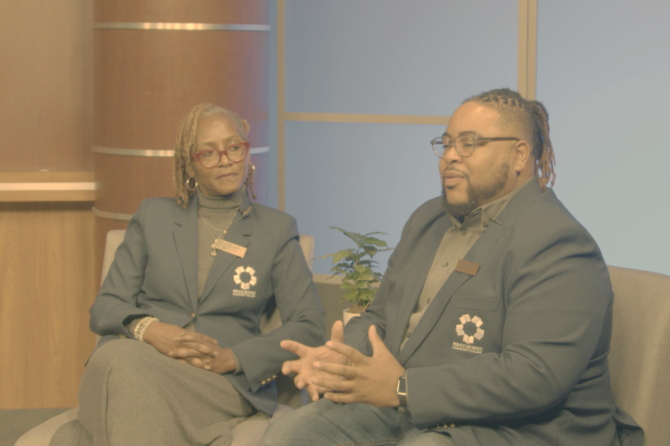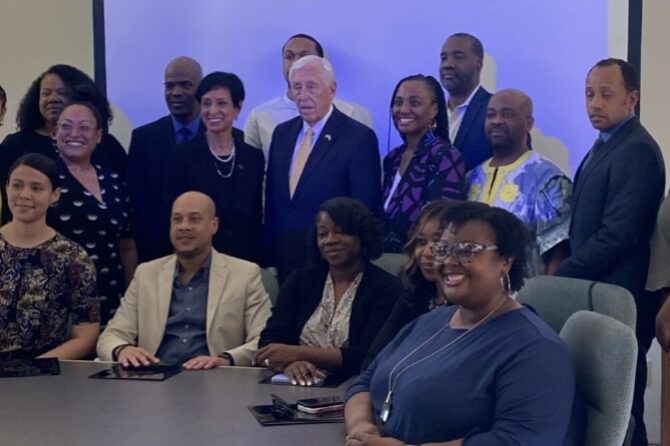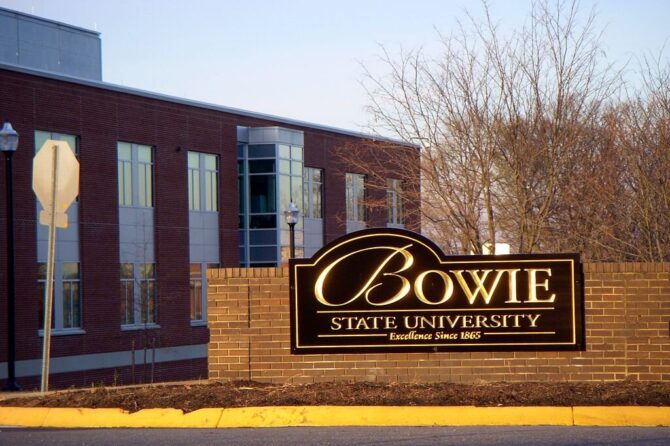The pandemic has exacerbated Maryland’s teacher shortage, a situation that already had been worsening for years.
A Maryland State Education Association report released in February showed that a large majority of Maryland teachers surveyed said staff shortages, onerous workload and burnout are serious or very serious concerns, while 60% said the pandemic made them more likely to leave the profession or to retire earlier than planned.
To address the problem, four Maryland universities are working to recruit and train Black male teachers, who nationwide make up only 2% of teachers. Meanwhile, in western Maryland, one school is preparing students to teach in rural areas.
Fueled by federal grants — and aware of their communities’ needs — Bowie State University, Coppin State University, Frostburg State University and the University of Maryland Eastern Shore have developed an array of programs to bolster the ranks of teachers statewide.
In 2019, Bowie State’s Center for Research and Mentoring of Black Male Students and Teachers created the Black Male Teachers College, a program to expose Black male high school students to the profession and to help those who want to be teachers.
Bowie State also created a mentoring, networking and professional development program called Scholar Fellows to support Black male undergraduate, master’s and doctoral students.
Bowie State’s program to recruit students to become STEM — science, technology, engineering and math — teachers has produced 45 paraprofessionals in the past three years, according to Lynne G. Long, chair of the school’s Department of Teaching, Learning and Professional Development.
Bowie State also seeks to train students to become early childhood education or special education teachers.
The school’s long-term goal is to build a four-year learning community to support Black males in education at all levels.
“You want to have teachers who are culturally into the relevant pedagogy, who will be able to deal with the students,” Long said. “You want these teachers to stay, to be committed to the children. That’s what this is all about.”
Coppin State University in Baltimore also offers an array of programs and projects designed to encourage Black men to become teachers.
Since 2016, Coppin State has offered a federally funded Pathway to Professions program, which includes residencies, a leadership academy and daylong field trips to schools.
Coppin State’s Center of Educational Excellence for Black Teachers, operated jointly with the University of Maryland Eastern Shore, and Coppin’s Center for Inclusive Excellence are both aimed at preparing and enlarging a diverse teacher workforce, the school says.
Coppin State also aims to build a national model to encourage the preparation of teachers from diverse backgrounds, said Yi-Ping Huang, a professor in the Department of Teaching and Learning who runs the teacher recruitment and assistance programs.
Huang noted that Coppin State was founded as a teachers college in 1900 and that recruiting and training teachers remain key parts of its mission.
“We need more teachers, we need better teachers,” Huang said. “We need teachers from diverse backgrounds so we can better prepare our next generations. … Our demographics are changing.”
The University of Maryland Eastern Shore, meanwhile, is taking a three-pronged approach to recruiting more teachers, according to Hazel Professor of Education Richard Warren Jr., who directs the school’s Men of Color in Education program.
“We know there’s a great teacher shortage,” Warren said. “We’re seeing it now more than ever. We have an aging teacher population, teacher attrition, retention problems. And COVID has exacerbated that.”
UMES offers a program designed to encourage dual enrollment, in which students majoring in other areas also get credits that can go toward a teaching certificate.
The school offers web seminars and other events to entice students into considering teaching as a profession. It also pairs students with professionals and helps with licensing exams.
The third prong is the Man the Shore network, a support group of some 40 men of color in education.
Progress in attracting Black male teachers is not always steady, Warren said.
“There’s no linear pathway,” he said. “Some moments you feel like you’re making great progress, other moments, a curveball comes and you don’t see how it’s going to come together.”
In Allegany County, in western Maryland, educators at Frostburg State University are training students to teach in rural areas.
Boyce C. Williams, dean of the school’s College of Education, said the shortage of rural teachers is a problem.
Like urban schools, rural schools have trouble attracting teachers, who generally prefer to work in wealthier suburban areas, he said.
“The most needy children generally have the least qualified teachers and the most highly sought-after school districts have the most qualified teachers,” Williams said. “Teachers might go to a rural or urban school, but once they get seniority or tenure, they go to Howard (County), they go to Montgomery.”
Frostburg’s programs include Maryland Accelerates, which offers a one-year master’s degree with an annual stipend of $30,000. After earning their degrees, graduates go on to teach in Frederick, Garrett or Washington counties for three years.
At the program’s first commencement, in 2020, six students received degrees. This year, 17 are set to graduate in June, Williams said.
Photo: Four Maryland universities are working to recruit and train Black male teachers, who nationwide make up only 2% of teachers. (Depositphotos)










